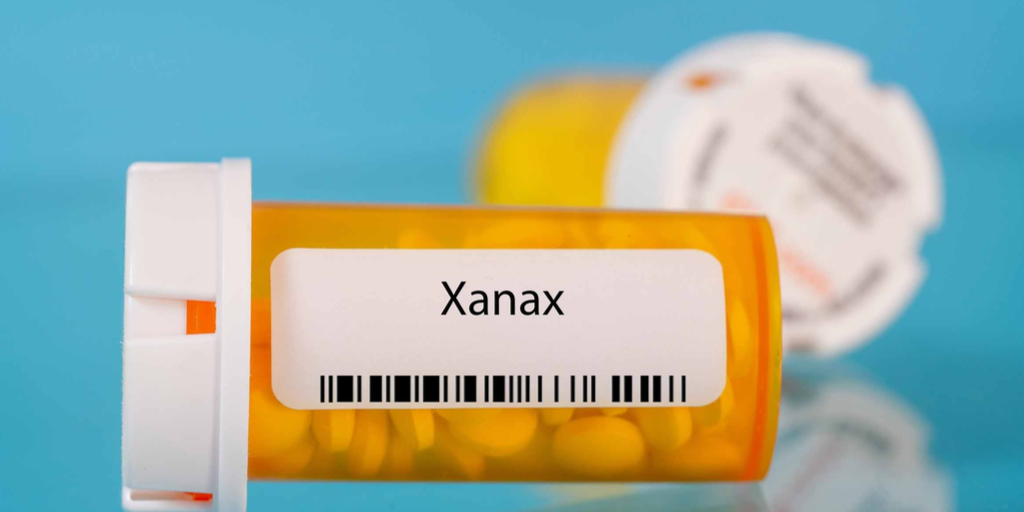Is Xanax Addictive? Signs, Symptoms, and Statistics of Xanax Addiction

My friend, Pam, had an appointment with her doctor to discuss gaining better control over her generalized anxiety. The doctor gave her a prescription for Xanax, along with some additional therapeutic and holistic suggestions.
But I could tell it was the medication that Pam was worried about, and I knew why: she battled addiction for the better part of 18 years, and now she has 12 years of sobriety under her belt.
Pam decided this was a good time to read the box warnings printed on the side of her Xanax (alprazolam) box and the patient information packet inside that box. This is where you’ll find important warnings and guidelines courtesy of the Food and Drug Administration (FDA) and printed by the pharmaceutical companies who manufacture Xanax.
The Risks Associated With Xanax
 Box warnings are the most serious FDA warnings because they alert both doctors and the general public about drug effects that may be dangerous.
Box warnings are the most serious FDA warnings because they alert both doctors and the general public about drug effects that may be dangerous.
“Have you ever read these warnings,” she asked with raised eyebrows.
The box warnings included the following language:
- Taking benzodiazepines with opioid drugs increases your risk for severe sleepiness, respiratory depression, coma, and death.
- Xanax should not be taken with opioids unless there are no alternative treatment options available.
- Using benzodiazepines, even as prescribed by your physician, can lead to physical dependence and withdrawal symptoms. Do NOT stop taking this drug suddenly. Withdrawal can be life threatening.
- Taking this drug can also lead to misuse and addiction. Misuse and abuse of Xanax increases your risk of overdose and death.
- Only take this drug as prescribed by your physician. Talk with your healthcare provider if you have any concerns about the safety of this drug.
Pam stared at me with a look of shocked on her face and said, “No way I’m taking this stuff or risking my sobriety. No way.” And I certainly couldn’t blame her; there were just too many risks she’d be facing if she took the medication.
Xanax Abuse and Addiction
Benzodiazepines (benzos) are central nervous system (CNS) depressants. When taken as directed, Xanax relaxes the body’s muscles, eases restlessness, and soothes feelings of anxiety. It is the most popular prescription drug for treating general anxiety, panic disorders, and mood disorders associated with depression. Sometimes Xanax is prescribed off-label for the treatment of insomnia, but the side effects can be adverse.1
Xanax is a controlled substance, and that means it has a high potential for abuse and addiction. But the medication is also used by a large number of addiction treatment centers to help treat symptoms of alcohol withdrawal.
There are two primary reasons that Xanax is particularly addictive:
- Xanax has a fast onset, meaning it quickly floods the brain with “feel good” neurotransmitters.
- Also, Xanax is commonly prescribed for the treatment of mental health disorders, but people who struggle with anxiety are actually at a much higher of abusing drugs. (See the problem here?)
Related Data and Research
 Data shows that overdoses from benzodiazepines have increased at a much faster rate than prescriptions are written for them, which indicates people are taking them in riskier ways or buying them on the street more often.1
Data shows that overdoses from benzodiazepines have increased at a much faster rate than prescriptions are written for them, which indicates people are taking them in riskier ways or buying them on the street more often.1
Reuters reported that prescriptions for benzodiazepines like Xanax have tripled in the past 20 years and fatal overdoses involving these drugs quadrupled during that same time period.2
A medical study found that young adults ages 18 to 29 reported the highest rates of benzodiazepine abuse.3 This age group tends to consume higher rates of alcohol, marijuana, ecstasy, and other intoxicating substances, meaning Xanax is likely to be mixed with various other drugs.
A PEW research report found more adolescents struggle with Xanax addiction. What’s worse, they are mixing this sedative drug with opioid painkillers, which is known to have lethal results.4
What Are the Side Effects of Xanax Abuse?
According to the FDA, benzodiazepines like Xanax should not be taken daily for more than two weeks at a time. This is because it’s easy to develop tolerance, dependence, and addiction to Xanax very quickly.
One troublesome side effect of Xanax abuse is something called “rebound symptoms.” This condition occurs when the symptoms that Xanax is supposed to relieve actually come back with increased severity. Rebound symptoms are triggered when someone suddenly stops taking Xanax. The most common side effects include:
Physical Effects
- Relaxation
- Euphoria
- Shifts in mood
- Loss of interest in sex
- Dizziness
- Dry mouth
- Erectile dysfunction
- Fatigue
- Nausea
- Vomiting
- Lack of coordination
- Seizures
- Shortness of breath
- Slurred speech
- Tremors
Psychological Effects
- Unable to focus
- Mental confusion
- Problems with memory
- Decreased inhibitions
By the 1980s, benzos had become some of the most prescribed drugs in the country.5 And with such widespread availability and high prescription rates, the medical community was forced to acknowledge the prevalence of benzo addictions.
Addiction Treatment for Xanax Dependency
If you’re taking a higher dosage of Xanax than what you’ve been prescribed, if you find yourself craving the drug, or if you experience withdrawal symptoms in the absence of the drug, you may have developed an addiction. Seeking professional help at an evidence-based drug rehab center is essential for successfully treating Xanax addiction.
Available treatment options may include:
- Detox and withdrawal
- Inpatient rehab
- Outpatient rehab
- Personal, group, or family therapy sessions
- Aftercare or sober living
- Alternative or holistic therapies
Resources:
- Overdose Deaths from Common Sedatives Have Surged, New Study Finds. (n.d.). Albert Einstein College of Medicine. https://einsteinmed.edu/news/releases/1155/overdose-deaths-from-common-sedatives-have-surged-new-study-finds/#:~:text=Overall%2C%20the%20rate%20of%20overdose
- Kennedy, M. (2016, February 26). Benzodiazepine prescriptions, overdose deaths on the rise in U.S. Reuters. https://www.reuters.com/article/us-health-rxdrugs-benzodiazepine-overdos/benzodiazepine-prescriptions-overdose-deaths-on-the-rise-in-u-s-idUSKCN0VZ2TU/
- Kurtz, S. P., Buttram, M. E., & Surratt, H. L. (2017). Benzodiazepine dependence among young adult participants in the club scene who use drugs. Journal of Psychoactive Drugs, 49(1), 39–46. https://doi.org/10.1080/02791072.2016.1269978
- Vestal, C. (2018, August 24). Teen xanax abuse is surging. Stateline. https://www.pewtrusts.org/en/research-and-analysis/blogs/stateline/2018/08/24/teen-xanax-abuse-is-surging
- Lerner, A., & Klein, M. (2019). Dependence, withdrawal and rebound of CNS drugs: An update and regulatory considerations for new drugs development. Brain Communications, 1(1), fcz025. https://doi.org/10.1093/braincomms/fcz025

